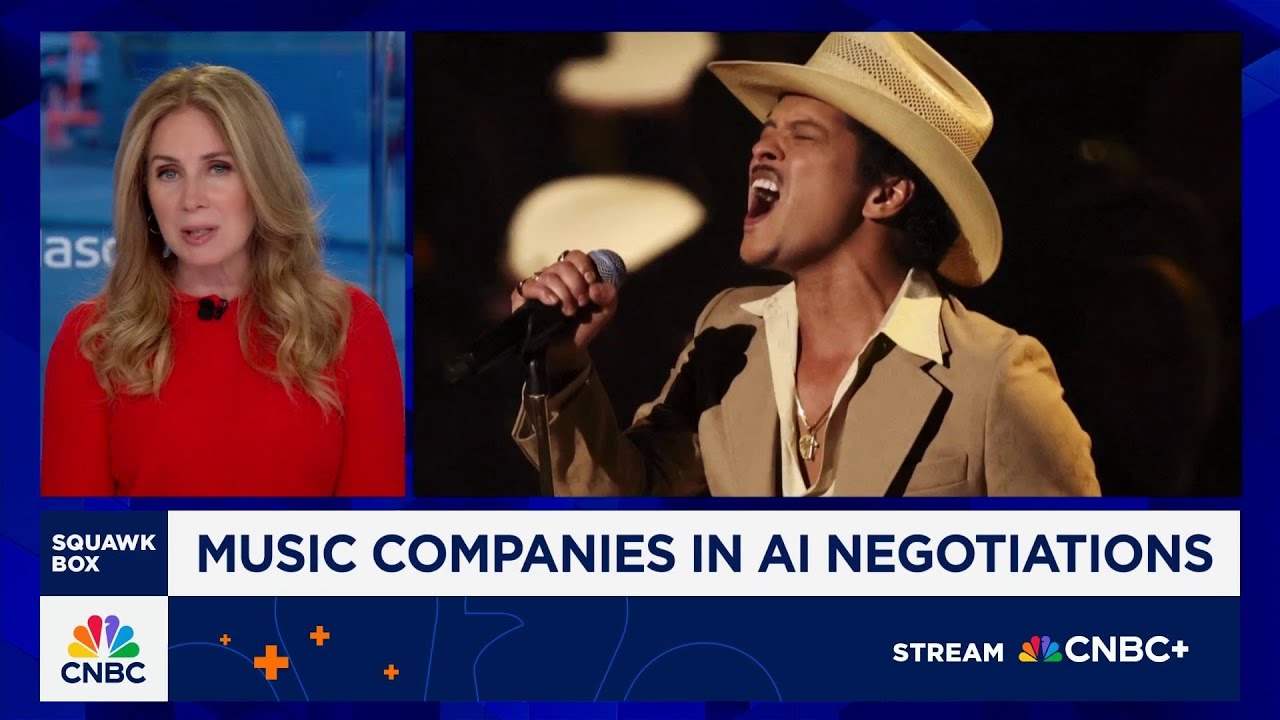The video explores ongoing licensing negotiations between major music companies and AI startups to regulate the use of artists’ music in AI training and content creation, raising concerns about artists’ rights, fair compensation, and industry impact. It also discusses how AI could both benefit established artists and deepen industry inequalities, while highlighting the uncertain future of music creation and consumption amid technological advancements.
The video discusses ongoing negotiations between major music companies—Universal Music Group, Warner Music Group, and Sony Music Group—and AI startups Suno and Udio. These deals aim to establish licensing agreements for the use of artists’ music in training AI models and generating new music. The negotiations are focused on protecting artists’ rights, regulating how their content is used, and creating new revenue streams for both the artists and the music companies. Each label is negotiating separately with the AI startups, which raises questions about whether individual artists like Taylor Swift or Bruno Mars are directly involved or if these deals are more about setting industry-wide precedents.
There is uncertainty about how these licensing deals will ultimately work and whether artists will have to approve or benefit directly from the use of their music in AI-generated content. Artists and industry insiders are concerned about fair compensation and the potential for their work to be used without adequate payment or control. The discussion highlights the complexity of balancing artists’ rights with technological advancements, and whether these deals will truly benefit creators or primarily serve the interests of large corporations and AI developers.
The conversation also touches on the potential impact of AI on artists’ careers. Some believe AI could help extend the longevity of established artists by re-energizing their music through remixes and collaborations, possibly opening new revenue streams. Conversely, there is concern for emerging artists who might struggle to gain attention in an environment increasingly dominated by AI-generated content. The debate centers on whether AI will democratize music creation or further entrench the dominance of already-famous artists, making it harder for newcomers to break through.
The discussion then shifts to the broader implications of AI in the music industry, suggesting that AI’s influence will likely benefit big-name artists and industry veterans more than new or lesser-known musicians. The speakers express skepticism about recent music trends, joking about the quality of music over the past two decades, but also acknowledging that AI could reshape how music is produced and consumed. They reflect on how AI might perpetuate existing inequalities in the industry, favoring those with established fame and resources.
Finally, the conversation veers into personal music preferences and listening habits, with references to classic radio stations, Sirius XM, and popular music from different eras. The speakers share their own tastes, highlighting how different generations and platforms influence music consumption. The overall tone suggests a mix of curiosity and skepticism about AI’s role in shaping the future of music, emphasizing the need to consider artists’ rights, industry dynamics, and the cultural impact of these technological changes.
